Postgraduate Examination of Biomedical Engineering in Shanghai Jiaotong University


Text of Postgraduate Examination for Biomedical Engineering in Shanghai Jiaotong University
Postgraduate Examination of Biomedical Engineering, Shanghai Jiaotong University
Bibliography of Biomedical Engineering Postgraduate Examination in Shanghai Jiaotong University
Ranking of Biomedical Engineering Postgraduate Examination Majors of Shanghai Jiaotong University
Experience in Postgraduate Entrance Examination of Biomedical Engineering in Shanghai Jiaotong University
Shanghai Jiaotong University
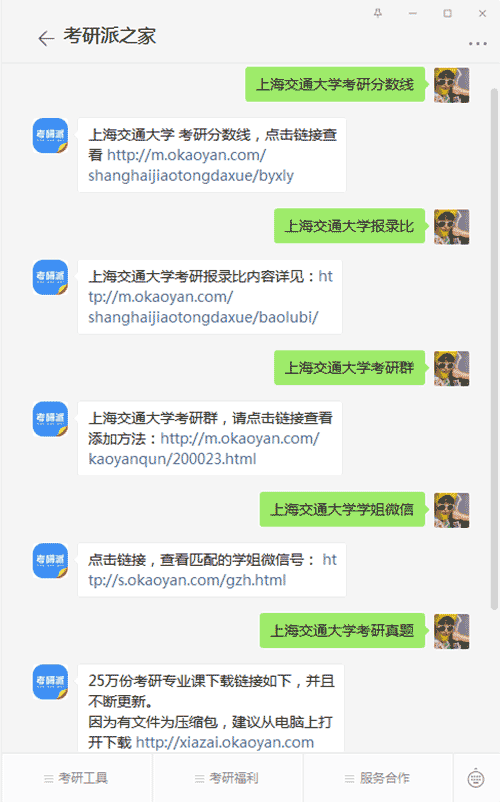

Recommended reading
-

2021 Shanghai Jiaotong University Basic Law Postgraduate Bibliography Fundamentals of Law Zheng Chengliang: Jurisprudence (Basic Course Series of Interactive Textbooks for Century Legal Education), Tsinghua University Press
Date: 01-09 Reading volume: 22901 -

2021 Shanghai Jiaotong University Journalism and Communication Postgraduate Bibliography Zhang Guoliang, Principles of Communication (the first edition), Fudan University Press; An Introduction to Mass Communication: Media Literacy and Culture (Version), written by Stanley Balan, China Renmin University Press. Professional Foundation of Journalism and Communication
Date: 01-07 Reading amount: 22304 -

2020-2021 Shanghai Jiaotong University Master of Accounting Reference Books Bibliography Financial Accounting, Accounting Series of Renmin University of China, fifth edition, Dai Deming, Lin Gang, Zhao Xibo; Principles of Corporate Finance, published by Northeast University of Finance and Economics Press, the original ninth English edition of Corporate Finance, Stephen Ross, etc., translated by Wu Shinong, etc
Date: 01-06 Reading volume: 23768 -

2021 Reference Books for Postgraduates Majoring in Automatic Control Principle of Shanghai Jiaotong University Subject Code Subject Name Reference Bibliography Automatic Control Principles Engineering Control Fundamentals First Edition Tian Zuohua, Chen Xuezhong, Weng Zhengxin Tsinghua University Press
Date: 10-07 Reading volume: 24962 -
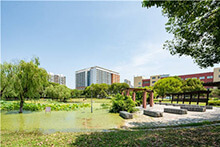
2021 Reference Books for Postgraduate Students Majoring in Automatic Control Theory of Shanghai Jiaotong University Subject Code Subject Name Reference Bibliography Automatic Control Theory Automatic Control Theory and Design, new edition, Xu Weili, Tian Zuohua, Shanghai Jiaotong University Press; Fundamentals of Modern Control Theory, compiled by Shi Songjiao, Chen Xuezhong and Du Xiuhua, Higher Education Press; Automatic Control
Date: 10-07 Reading volume: 23547 -

2021 Shanghai Jiaotong University Control Theory Foundation Postgraduate Entrance Examination Bibliography Subject Code Subject Name Reference Bibliography Control Theory Foundation of Control Theory, edited by Wang Xianzheng, et al., Science Press, 3rd edition
Date: 10-07 Reading volume: 21324 -

Reference Books for Postgraduate Candidates of Nuclear Reactor Engineering of Shanghai Jiaotong University in 2021 Subject Code Subject Name Reference Bibliography Nuclear Reactor Engineering Nuclear Reactor Physical Analysis Unified Textbook Atomic Energy Press; Nuclear Energy Press, the textbook of Reactor Thermal Analysis
Date: 10-07 Reading volume: 24091 -

2021 Shanghai Jiaotong University Engineering Thermodynamics Postgraduate Entrance Examination Bibliography Subject Code Subject Name Reference Bibliography Engineering Thermodynamics Engineering Thermodynamics Shen Wei Dao Tong Jungeng Fourth Edition Higher Education Press; Engineering Thermodynamics Learning Tutoring and Problem Solving, Tong Jungeng, the first edition or the first edition, Higher Education Press
Date: 10-07 Reading volume: 22367 -

2021 Reference Books for Postgraduates Majoring in Production Planning and Control of Shanghai Jiaotong University Subject Code Subject Name Reference Bibliography Production Planning and Control Production and Operation Analysis (Version) (Industrial Engineering Series of Excellent Teaching Materials of Foreign Universities (Photocopy)), written by Nahams, adapted by Cheng Ye, Tsinghua University Press; Production Planning and Control Pan Ershun
Date: 10-07 Reading volume: 2954 -

2021 Shanghai Jiaotong University Quality Management Postgraduate Entrance Examination Bibliography Subject Code Subject Name Reference Bibliography Quality Management Quality Management, edited by Wu Ai, Jinan University Press
Date: 10-07 Reading volume: 23471 -

2021 Reference Books for Postgraduates of Shanghai Jiaotong University majoring in Heat Transfer Subject Code Subject Name Reference Bibliography Heat Transfer, Fourth Edition, Yang Shiming, Tao Wenquan, Higher Education Press
Date: 10-07 Reading volume: 23908 -

2021 Reference Books for Postgraduates Majoring in Mechanical Principle and Design of Shanghai Jiaotong University Subject Code Subject Name Reference Bibliography Mechanical Principle and Design Mechanical Principle, edited by Zou Huijun, Zhang Chunlin and Li Qiyi (second edition), Mechanical Design and Theory, edited by Li Zhuguo and Xu Min, Higher Education Press, Science Press
Date: 10-07 Reading volume: 23287 -

2021 Reference Books for Postgraduates of Inorganic and Analytical Chemistry in Shanghai Jiaotong University Subject Code Subject Name Reference Bibliography Inorganic and Analytical Chemistry, compiled by Chen Hongjin, Science Press
Date: 10-07 Reading volume: 2901 -

2021 Shanghai Jiaotong University Traffic Engineering Postgraduate Entrance Examination Bibliography Subject Code Subject Name Reference Bibliography Traffic Engineering Urban Traffic and Road Planning, Li Chaoyang, Huazhong University of Science and Technology Press; General Introduction to Traffic Engineering (Third Edition), Xu Jiqian, Chen Xuewu, People's Communications Press
Date: 10-07 Reading volume: 24398 -
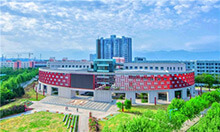
2021 Shanghai Jiaotong University Engineering Economics Postgraduate Entrance Examination Bibliography Subject Code Subject Name Reference Bibliography Engineering Economics Transport Technology Economics (5th Edition), Jun Zhicai, People's Communications Press; Engineering Economics, Song Guofang, Jia Hu, Tianjin University Press; Engineering Economics, Huang Yuxiang, Xing Aifang, Tongji University
Date: 10-07 Reading volume: 24135 -

2021 Reference Books for Postgraduates Majoring in Material Mechanics of Shanghai Jiaotong University Subject Code Subject Name Reference Bibliography Mechanics of Materials (First Edition), Shan Huizu, Higher Education Press; Mechanics of Materials, Sun Guojun, Zhao Shexu, Shanghai Jiaotong University Press; Mechanics of Materials, Jin Zhongmou, China Machine Press
Date: 10-07 Reading volume: 24370 -

2021 Reference Books for Postgraduates majoring in Theoretical Mechanics of Shanghai Jiaotong University Subject Code Subject Name Reference Bibliography Theoretical Mechanics (Third Edition), Liu Yanzhu, Higher Education Press; Theoretical Mechanics, Hong Jiazhen, Higher Education Press
Date: 10-07 Reading volume: 24848 -

2021 Reference Books for Postgraduate Entrance Examination of Basic Chinese and International Education in Shanghai Jiaotong University Subject Code Subject Name Reference Bibliography Fundamentals of Chinese International Education Outline of Chinese Culture (Third Edition) Cheng Yuzhen Foreign Language Teaching and Research Press; Introduction to Intercultural Communication, Hu Wenzhong Foreign Language Teaching and Research Press; Introduction to Pedagogy of Chinese as a Foreign Language Liu Xun Bei
Date: 10-07 Reading volume: 23476 -
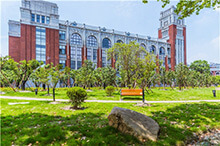
2021 Reference Book for Postgraduate Entrance Examination of Journalism and Communication Major of Shanghai Jiaotong University Subject Code Subject Name Reference Bibliography Basis of Journalism and Communication, Ai Feng, People's Daily Press; Ding Fazhang, Contemporary News Review Course (Version), Fudan University Press; A Must for All round Journalists: News Gathering
Date: 10-07 Reading volume: 22485 -
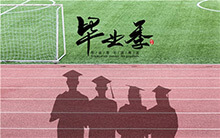
2021 Shanghai Jiaotong University Statistics Postgraduate Entrance Examination Bibliography Subject Code Subject Name Reference Bibliography Statistics () Statistics (the seventh edition and later editions are acceptable), compiled by Jia Junping, He Xiaoqun, Jin Yongjin, China Renmin University Press; () Any textbook of Probability Theory and Mathematical Statistics for non mathematics majors
Date: 10-07 Reading volume: 21835





























































